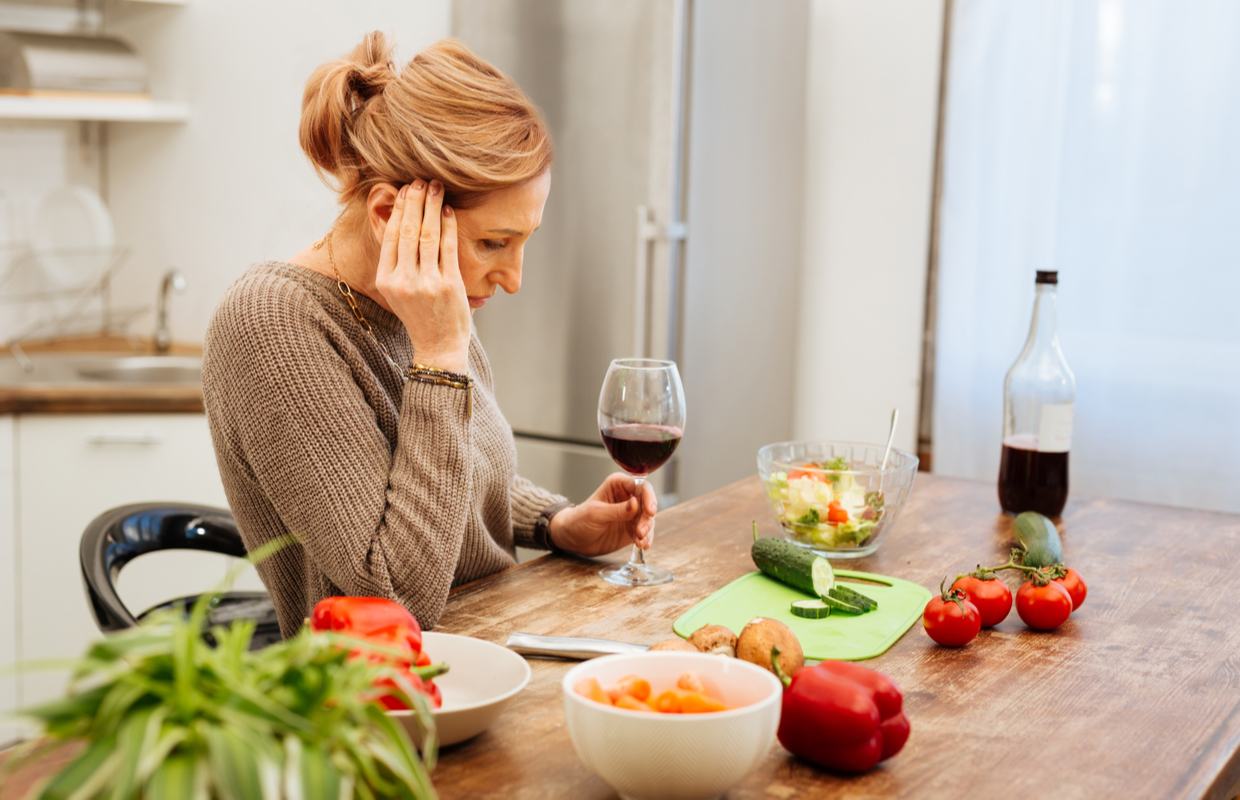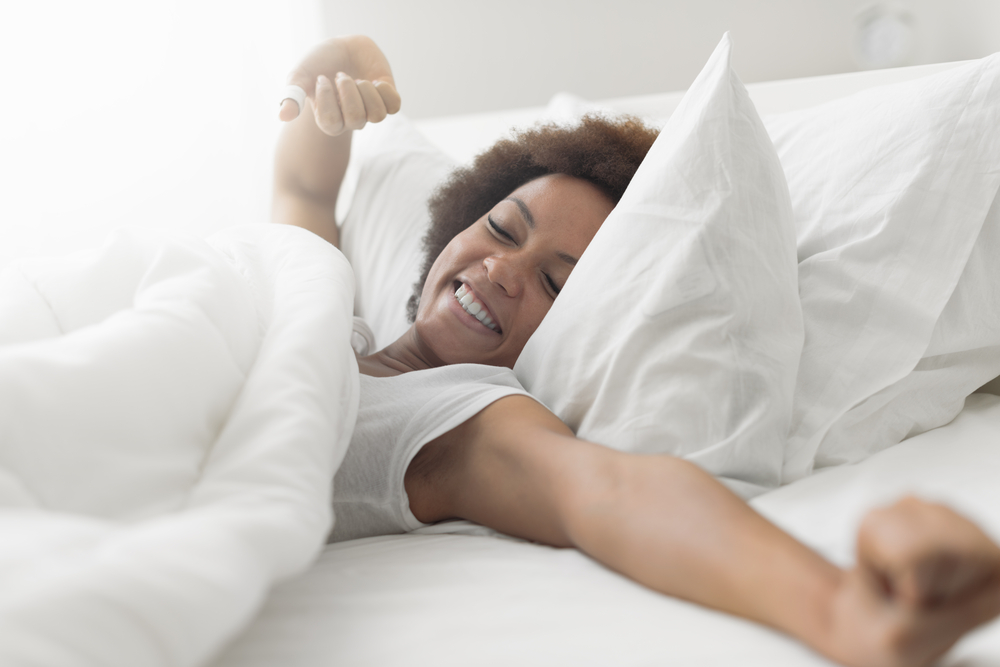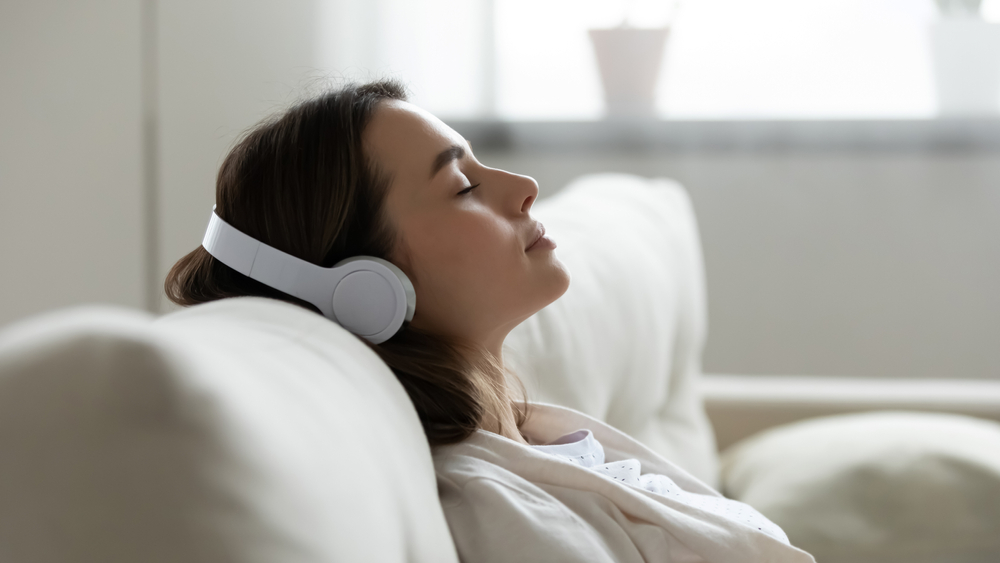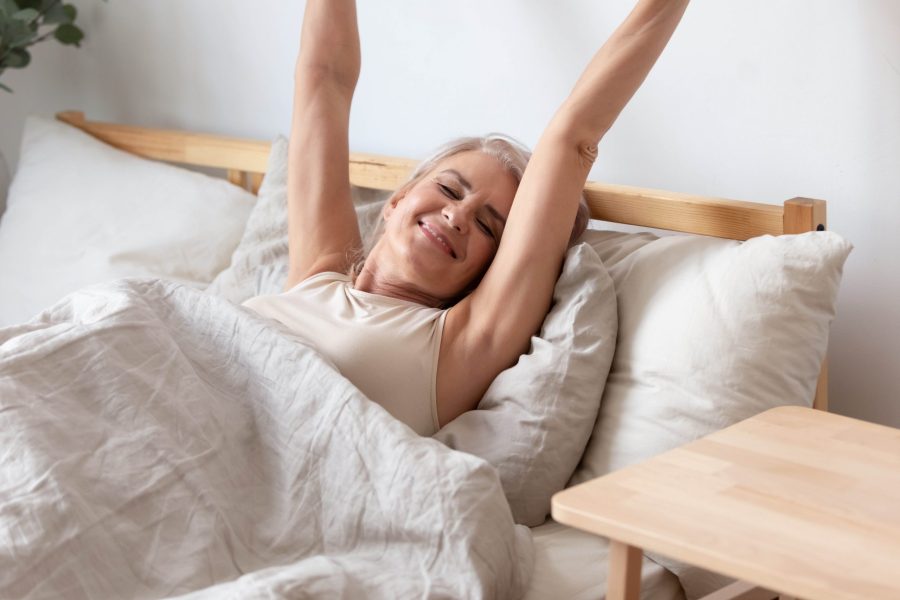Improve your sleep quality and increase your chances of a better night’s sleep with these 15 tips from our sleep and nutrition experts…
By Alison Hardinge
Getting good quality sleep is one of the most important things you can do for your health. So what can you do to help switch off an over-active brain especially before bed?
‘Relaxation techniques such as meditation, guided imagery and breath work can all help to encourage a more peaceful night,’ says Phil Lawlor, sleep expert at mattress company Dormeo. Here are some more
great tips to help you sleep better tonight…
Try guided imagery to sleep better
‘This is a form of focussed relaxation where you concentrate intently on a particular peaceful space, sound, or environment to focus and calm the mind. The idea is that your body will react positively to your peaceful thoughts to promote a calm state,’ says Phil.
By focussing on a pleasant, peaceful scenario – such as being at your favourite beach on a calm, sunny day or walking through a peaceful meadow – your mind and body tend to relax. Spending a few minutes in bed emerged in a calming, restful guided journey is a great addition to your routine.

Ditch the booze to improve your sleep
While alcohol may make you drowsy, it doesn’t necessarily help you sleep well. ‘Alcohol can dehydrate you, causing you to wake up during the night. It can also impair the restorative part of the sleep cycle, REM, as well as interfering with the flow of calcium into nerve cells, affecting the region of the brain that controls sleep function,’ says nutritionist and author Rob Hobson.
Take valerian to promote better sleep
This traditional herbal remedy is associated with the treatment of stress but may also help to aid sleep. ‘The sedative effect of valerian is due to the inhibition of enzymes that break down an inhibitory brain chemical called Gamma-Aminobutyric Acid (GABA). As GABA levels rise, they dampen down over-stimulation that can cause anxiety-driven thoughts,’ says Rob.
TRY IT: A.Vogel Dormeasan® Valerian-Hops oral drops (£4.95) is a traditional herbal medicinal product to aid sleep.
Try progressive muscle relaxation
This “grounding” technique can help reduce feelings of anxiety and muscle tension that might otherwise hinder sleep. ‘The technique involves systematically going through the main muscle groups in your body, from toes up, tensing each for five seconds and relaxing, resting, then breathing deeply for 10 seconds before moving to the next muscle group,’ says Phil.

Choose good bedding to improve your sleep quality
Make sure your bedding is as breathable as possible to keep your body temperature stable and in sync with your circadian rhythm.
‘Whether or not you suffer with allergies, your bedding should be hypoallergenic. Dust mites thrive on bedding as they dine out on dead skin cells and trigger allergic reactions in response to their droppings, which will affect your breathing through the night and wake you up as a consequence,’ says Rob.
Make your bedroom a sanctuary
Treat your bedroom as a sanctuary by surrounding yourself with comforting, soft furnishings and textiles. ‘Experiment with essential oils such as lavender, or soothing candles (remember to extinguish before sleeping!).
‘A black-out blind or curtain is essential, even in winter and where there is little light pollution, as even the moon can interrupt sleep!’ says Phil.
Eat carbs in the evening to sleep better
Tryptophan is an essential amino acid found in foods such as nuts, seeds, soya, poultry, oily fish and eggs that must be obtained from the diet as the body can’t make it.
‘Tryptophan is required to make melatonin in the brain, which is the hormone that helps to make you feel drowsy and ready for sleep. However, in order to help with its uptake to your brain, you need to elevate your insulin levels. You can do this by teaming your protein with pasta or rice,’ says Rob

Cut the clutter to promote better sleep
It’s time to clear your room if you want to sleep well! Remove anything that’s not conducive to a restful, relaxing environment, save only your lamp and possibly a candle on your bedside table.
And, yes, the same rule applies to any digital devices, such as TVs, laptops and phones, this is your space to sleep, so be strict with yourself.
Try yoga forward folds before bed
‘In yoga, any head-below-heart pose helps calm and relax the nervous system,’ says Kim Jones, author of 222 Ways to Trick Yourself to Sleep (Piatkus, £12.99).
Sit on the edge of your bed, or standing, fold forward at the hips, letting your head and arms dangle, and place your fingers lightly around your ankles to help anchor yourself. Breathe slowly and deeply for up to 60 seconds – if it feels uncomfortable, slowly rise out of the position.
Roll your eyes to make you feel sleepy
As you’re nodding off, your eyes naturally roll upwards to an angle of around 20 degrees. ‘Mimicking this movement should help you feel sleepy,’ says Kim Jones.
‘Simply close your eyes, inhale, and look up to your forehead. Then, lower your eyes as you exhale. Repeat several times. ‘Doing this is to slow down your beta brainwaves (the active ones) to more relaxed alpha waves that induce sleep,’ says Kim.

Sleep better by listening to nature
Researchers from Brighton and Sussex Medical School found that listening to familiar natural sounds, such as the wind in the trees or rainfall, can help alter connections in your brain and switch your mind and body from fight-or-flight to rest-and-digest mode.
‘There are plenty of apps and downloads of nature sounds that could help your mind wander off and send you to sleep, from frogs at night-time to rolling thunderstorms or calming tropical rain. If you don’t want to use a digital device, try the Morphée, which plays nature sounds and more.
Take magnesium to improve your sleep quality
Magnesium is involved in the regulation of melatonin therefore it could help you sleep. ‘A study published in the Journal of Reviews of Medical Sciences showed that taking a magnesium supplement helped improve levels of melatonin, sleep time and sleep efficiency (how much you wake during the night),’ says Rob, author of The Art Of Sleeping (£9.99, HQ).
Magnesium is also used for relieving aching muscles and balancing mood, and is helpful for women with PMS and during the menopause. Look for a supplement containing magnesium citrate. Also find it in leafy greens, nuts, pumpkin seeds, dates, prunes and tuna.
TRY IT: Healthspan OptiMagnesium (£11.95 for 90 tablets)
Lay the right way in bed
The way you sleep can help or hinder certain conditions. For back and neck pain, try sleeping on your back to allow the spine to rest in a neutral position, which limits any excess pressure on those areas (try a firm, molded neck supporting pillow such as Kally Sleep Neck Pain Pillow (£39.99).
Also try placing a pillow under the back of your knees. For snoring or sleep apnoea, adopt a side position to help keep your airways open. If you struggle with heartburn, sleep on your left-hand side to help reduce reflux.

Practice 4-7-8 breathing regularly
When practised regularly, this breathing pattern can help you relax and fall asleep faster. ‘It’s designed to encourage your body into a state of deep relaxation and is particularly useful if you are experiencing sleep issues due to worry and anxiety,’ says Phil.
Get into a comfortable position, either sitting or lying down. Let your lips part. Exhale completely through your mouth, making a whooshing sound. Now, close your lips and inhale silently through your nose, counting to four in your head.
Next, hold your breath for seven seconds. Exhale from your mouth for a count of eight, making a whooshing sound. Repeat for a few minutes.
Try journaling before bed
The physical act of mindful journaling can help manage anxiety, fear and negative thoughts. ‘If you struggle to get to sleep because your brain is in overdrive and you are consumed by thoughts, keep a notebook on by your bed to write down to-do lists and anything bothering you,’ suggests Phil.
‘Also, writing down your thoughts and feelings and what you are grateful for can benefit your sleep. Studies have shown that higher levels of gratitude, expressed in the form of journaling, lead to better sleep and reduced signs of anxiety and depression.’
If you are still struggling with sleep due to insomnia, anxiety, or depression, do visit your GP or contact a mental health charity such as Mind.








